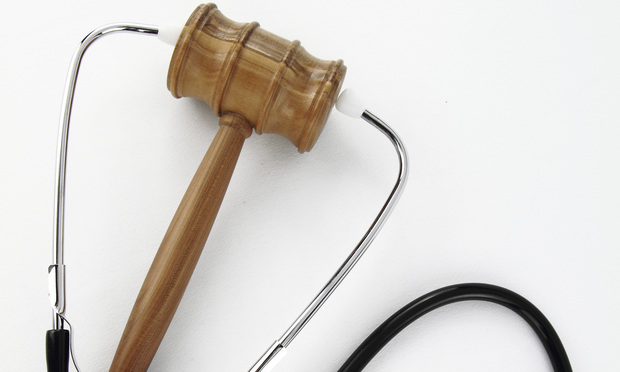A New Jersey physician pilloried on three separate websites by a former patient has seen $65,000 in compensatory and punitive damages taken away in his defamation suit, thanks to an appeals court’s ruling.
“The defamatory meaning of the postings, in particular, the … statements that plaintiff ‘will rob you,’ and had ‘already been accused of lying and intentionally poisoning an entire town by the district attorney,’ was clear,” Appellate Division Judges William Nugent and Michael Haas said in the Sept. 22 decision.
But the court was “unable to conclude that plaintiff demonstrated that he sustained any actual (compensatory) damages.”
Frank Scaccia M.D., an otolaryngologist (ear, nose and throat doctor) as well as plastic surgeon, was visited in March 2007 by the defendant-patient, according to the decision, which refers to the patient only as J.M.
Scaccia performed a rhinoplasty procedure and chin augmentation on J.M., who returned once claiming he had subsequently injured his nose, though there allegedly was no visible damage, and another time, asking for his patient chart, the decision stated.
The posts at issue came over a period of months in 2009, on www.doctordecision.com, www.ripoffreport.com and www.liposuction4you.com. One said Scaccia will “‘roll the dice with you [sic] life and leave you looking horrible’”; another claimed the patient went in for a deviated septum procedure and was convinced to have a full nose job, which wound up being an 11-hour procedure that led to excessive bleeding, chronic pain, infection and deformity, according to excerpts from the decision.
“‘I WRITE ONLY TO SAVE OTHERS FROM THIS QUACK,’” the author also wrote, according to the excerpts.
Scaccia, in an interview, said all J.M.’s accusations were false, the surgery went well, and J.M.’s post-surgery behavior was bizarre, including a request to get his old nose back.
Scaccia learned J.M. was the author when J.M. uploaded his photo to one of the posts, according to the decision.
The complaint claimed he’d heard secondhand that prospective patients were reconsidering
his services in light of the reviews.
Default against J.M., for failing to comply with discovery orders, were twice vacated, but a final judgment of default was entered. At a proof hearing, Scaccia testified that he’d tried to have the bad reviews buried in internet search results, but stopped short of saying he’d lost business because of the reviews, and acknowledged that he couldn’t put a number on the damages, according to the decision.
Monmouth County Superior Court Judge Jamie Perri found that Scaccia was indeed defamed, largely because at least one of the posts accused him of criminal activity, and awarded $25,000 in actual and presumed damages, and $40,000 in punitive damages for willful and wanton conduct.
J.M. appealed, but the panel upheld Perri’s finding that Scaccia met his burden of showing that J.M. made the statements at issue.
“In view of the fact that defendant posted a picture of himself on a website in connection with one of the postings, it is difficult to imagine how the judge could have found otherwise,” the panel said.
But the court vacated the damages award, “because plaintiff failed to demonstrate actual
harm to his reputation by competent evidence[.]” The case was
remanded for a hearing on
whether Scaccia might be entitled to nominal damages, which may be awarded in the absence of
proof of actual damages, per the state Supreme Court’s 2015
decision in Nuwave Inv. v. Hyman Beck.
The court said Scaccia is not entitled to punitive damages,
which are awardable only if compensatory damages are awarded, and “punitive damages would not be permitted even if plaintiff ultimately receives nominal damages on remand.”
Scaccia’s counsel, Anthony Juliano of Brach Eichler in Roseland, said the vacatur is disappointing, but “I think doctors should continue to bring these cases up.”
“Doctors are always concerned about what people are saying about them on the internet,” said Juliano, whose firm represents numerous medical practices. “We do have a lot of conversations on how we should proceed.”
“Doctors’ reputations are important—especially surgeons,” Juliano added.
Scaccia said he contacted the websites directly, but, because patient confidentiality, “we can only defend ourselves so much.”
“Our only avenue … is a defamation suit,” he said.
J.M. was pro se.
Contact the reporter at [email protected]. On Twitter: @dgialalanellanjlj.



